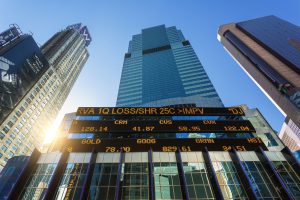
The stock market has been a popular investment avenue for individuals and organizations for many years. Despite its popularity, many experts continue to make predictions about when the stock market is going to crash, and these predictions have often proven to be wrong. In fact, going back to the Tulip bubble in the 1600s, the history of the stock market is filled with examples of experts who claimed to know when the market would crash, yet they were consistently incorrect.
One of the reasons why experts continue to make these incorrect predictions is because the stock market is inherently unpredictable. Market crashes are usually caused by a combination of factors, such as changes in government policies, geopolitical events, economic downturns, and unexpected developments in technology. It is difficult, if not impossible, for anyone to predict when and how these factors will come into play. As a result, predictions about the stock market’s future are often based on speculation and intuition, rather than sound analysis.
Another reason why experts get it wrong is that they often overlook the market’s underlying strength. Despite its volatility, the stock market has proven to be resilient over the long term, and has consistently delivered returns to investors who are willing to hold onto their investments for the long haul. This resilience is due in part to the market’s ability to absorb shocks, recover from downturns, and continue to grow, even during times of economic turbulence.
From a bullish perspective, a stock market crash can be seen as a buying opportunity. During a market crash, prices of stocks often fall dramatically, and investors who are willing to take advantage of the dip can buy high-quality stocks at a lower price. Over time, as the market recovers, these stocks are likely to appreciate in value, delivering substantial returns to the investor.
On the other hand, a contrarian perspective would argue that a stock market crash is a sign of systemic problems in the economy. During a market crash, investors are usually panicked, and they tend to sell their stocks, causing prices to fall even further. This creates a vicious cycle, as investors become increasingly pessimistic and sell even more of their stocks, causing prices to fall even more. A contrarian would argue that a market crash is not a buying opportunity, but rather a sign that it’s time to get out of the market and wait for better times.
In conclusion, while experts continue to make predictions about when the stock market will crash, their track record has been consistently poor. The stock market is inherently unpredictable, and its resilience over the long term suggests that it’s often wise to ignore the noise and focus on building a diversified portfolio that is well-positioned to withstand short-term turbulence. Whether a market crash is seen as a buying opportunity or a warning sign will depend on the perspective of the investor, but it is important to understand that, over the long term, the stock market has proven to be a reliable investment vehicle for those who are willing to be patient and stick to their investment plan.
Pray tell, in these times of economic turmoil and financial insecurity, it seems as though the masses are quick to bemoan the stock market and its tumultuous ways. Yet, it is often the case that such bearishness proves to be unwarranted, for as the great sage Warren Buffett has oft stated, the markets are a veritable guarantee to rise in the long term.
And so, even as the spectre of market crashes looms large, the astute investor must not be swayed by the rabble’s fearmongering. Nay, rather one should view these tempests as opportunities to buy quality stocks at a discounted price. For, when the masses are in a state of panic and selling off, the wise investor takes advantage, backed by the knowledge that the central bankers of the world shall not let the markets falter for long.
Indeed, look around and observe the various stimulus programs being announced. Money shall continue to flood the markets, and the fear of the masses shall be assuaged. So, embrace the corrections, good sir or madam, for they shall bring bountiful opportunities for those who have the foresight to see it.
Conclusion
Ah, but let us not forget, amidst all the uncertainty and turmoil, that a market crash can be a rare and wondrous opportunity for those with the mettle to seize it! For when the masses panic and sell off their stock in a frenzied haste, the astute investor sees not Chaos and despair, but a veritable feast of bargains and opportunities waiting to be claimed!
Indeed, as the smoke clears and the dust settles, the shrewd investor calmly approaches the market, seeking out the gems that have been cast aside by the masses in their blind panic. And as they fill their portfolios with these undervalued treasures, they bask in the knowledge that they have outmanoeuvred their less insightful counterparts and emerged from the crash not merely unscathed, but richer for the experience.
So, let the market crash if it must! For those with a contrarian spirit and an unwavering faith in their own instincts, it is but a minor bump in the road, an obstacle to be overcome on the path to riches and success!
Other Articles of Interest

Bear Market nonsense: Experts want you to think Markets are Going to Crash

US Dollar Finally Hit Bottom?

Uranium Futures price chart

Sophistication in Sentiments: The Stock Market Emotions Chart Explained

The Artful Approach to Winning the Stock Market Game

Harnessing Power: The Dynamic Approach of Small Dogs Of the Dow

Psychology Unveiled: Exploring the Depths of the Human Mind

Stock Portfolio Tracker

What happens if the stock market crashes?

Achieving Financial Goals with Intelligent Investing Strategies

Stock market performance 2019

Quantitative Easing Definition

Stock Market Update



